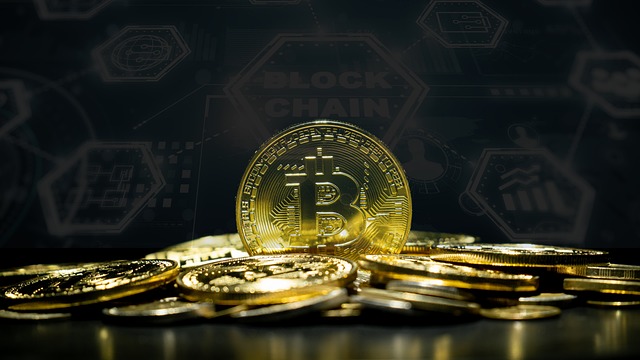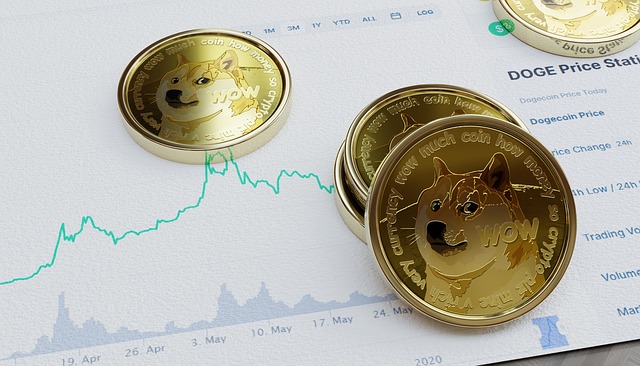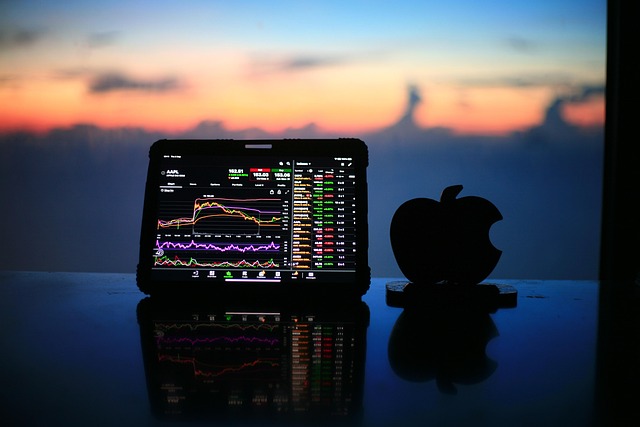Essential list of crypto trading platforms in Nigeria: Top picks & how to choose
Author: Jameson Richman Expert
Published On: 2025-10-25
Prepared by Jameson Richman and our team of experts with over a decade of experience in cryptocurrency and digital asset analysis. Learn more about us.
The growing crypto ecosystem in Nigeria means traders and investors need a reliable, secure way to buy, sell, and hold digital assets. This comprehensive list of crypto trading platforms in Nigeria summarizes the most popular exchanges that serve Nigerians, explains fees, payment options (including NGN bank transfers and P2P), regulatory considerations, security best practices, and how to pick the right platform for your needs. Whether you’re a beginner looking for a simple app or an advanced trader seeking low fees and margin tools, this guide will help you decide.

Why a reliable list of crypto trading platforms in Nigeria matters
Nigeria is one of the world’s fastest-adopting crypto markets by volume and user interest. However, differences in KYC requirements, deposit/withdrawal options (bank transfers vs. P2P), trading fees, liquidity, and customer support make platform choice critical. A curated list focused on platforms accessible to Nigerians saves time and reduces risk by highlighting regulated options, safety practices, and technical differences.
Regulatory and banking landscape in Nigeria (short overview)
Understanding the regulatory environment is essential before choosing a platform. In 2021 the Central Bank of Nigeria issued guidance restricting banks’ facilitation of cryptocurrency-related transactions. Since then, enforcement and the broader regulatory approach have evolved—Nigeria’s Securities and Exchange Commission (SEC) and other agencies have been active in proposing frameworks for digital assets. For official guidance consult the SEC Nigeria site (sec.gov.ng) and the Central Bank of Nigeria (cbn.gov.ng).
For general background on cryptocurrency adoption and trends in Nigeria, see the Wikipedia overview on cryptocurrency in Nigeria: Cryptocurrency in Nigeria - Wikipedia.
How we selected platforms for this list
- Availability to Nigerian users (support for NGN, P2P, or international payments)
- Security and regulatory posture (KYC, 2FA, cold storage policies)
- Fees, liquidity, and supported asset ranges
- User experience: mobile apps, customer support, fiat on/off ramps
- Reputation and market share

Top crypto trading platforms in Nigeria (detailed list)
Below is a practical list of crypto trading platforms in Nigeria with features, pros/cons, and actionable notes for Nigerians. Platforms are grouped by common use cases: P2P/fiat onramps, international exchanges that accept Nigerians, and local exchanges.
1. Binance (global exchange with P2P and NGN support)
Best for: High liquidity, broad coin selection, P2P NGN trading.
- Key features: Spot, margin, futures, staking, P2P marketplace that supports Naira (NGN) on/off ramps.
- Fees: Competitive maker/taker fees; P2P fees typically low or zero. See platform fee schedule on Binance’s website.
- Deposit/withdrawal: Bank transfers via P2P; card payments supported in some regions.
- Security: Offers 2FA, SAFU emergency fund, device management, withdrawal whitelists.
Binance is widely used in Nigeria because its P2P system allows direct NGN payments between users. If you want a deeper discussion of Binance safety and practical security measures, read this in-depth guide: Is Binance safe for trading?
If you decide to register, you can use this referral link: Register on Binance (referral).
2. Bybit
Best for: Derivatives traders, low-latency matching engine.
- Key features: Spot trading, perpetual futures, advanced order types, margin, staking, and copy trading.
- Fees: Competitive trading fees and VIP discounts for high volume traders.
- Deposit/withdrawal: Crypto deposits supported; Nigerian users can use P2P or third-party on-ramps for NGN.
- Security: 2FA, cold storage for funds, regular audits and bug bounties.
Sign up via: Bybit referral link.
3. Bitget
Best for: Futures trading, copy trading, and derivative products.
- Key features: Spot, futures, copy trading marketplace, competitive fees and promotions.
- Deposit/withdrawal: Crypto deposits accepted; NGN via P2P or partners.
- Security: 2FA, cold reserves, KYC processes.
Register through this referral link: Bitget referral.
4. MEXC
Best for: Wide altcoin selection and frequent token listings.
- Key features: Spot, margin, futures, staking, often lists new projects early.
- Fees: Low trading fees and frequent fee promotions.
- Deposit/withdrawal: Crypto deposits supported; NGN via P2P or local partners.
Register via: MEXC referral link.
5. Luno
Best for: Beginners and simple NGN on/off ramp.
- Key features: Simple wallet-style interface, buy/sell with local currency in some African markets.
- Fees: Transparent fee schedule; often favorable for small-volume traders.
- Deposit/withdrawal: Local bank transfers supported in markets where Luno operates.
- Security: KYC, 2FA, custodial insurance policies in jurisdictions where offered.
Note: Luno’s availability and NGN support can change—check their official site before depositing funds.
6. Quidax
Best for: Nigerian-focused exchange with NGN support and bank integration.
- Key features: Local fiat (NGN) deposits and withdrawals, spot trading, OTC services.
- Fees: Competitive for local users; clear NGN pairs.
- Deposit/withdrawal: Direct bank transfers, mobile banking integration.
- Security: Local compliance, KYC processes tailored to Nigerian regulations.
7. Yellow Card
Best for: Simplicity and fiat access via local bank transfers and agents.
- Key features: Instant fiat purchases, mobile app designed for African markets, cash-in/agent networks in some areas.
- Fees: Fee varies by payment method; transparent at checkout.
- Security: KYC, 2FA, and local compliance measures.
8. Remitano
Best for: Peer-to-peer buying/selling with escrow protection.
- Key features: P2P escrow system, multiple payment options, simplified UI for beginners.
- Fees: Fee per trade; P2P may yield competitive rates.
- Deposit/withdrawal: Bank transfers, local payment methods supported by sellers/buyers.
9. Bundle Africa
Best for: Social crypto experience and easy NGN purchases.
- Key features: Social feed, simple buy/sell, fiat support for Nigerian users.
- Fees: Transparent rates; small spreads on purchases.
- Security: Custodial wallets, KYC for higher limits.
10. BuyCoins
Best for: Quick NGN onramps and OTC services for Nigerians.
- Key features: Instant NGN deposits, OTC for large trades, wallet services.
- Fees: Competitive local fees and clear pricing.
How to compare these platforms (practical checklist)
- Fiat on/off ramps: Does the exchange let you deposit/withdraw NGN directly or via P2P?
- Fees: Compare maker/taker fees, withdrawal fees, and deposit fees. Consider spreads on instant buy features.
- Liquidity & volume: High liquidity reduces slippage for larger orders—important for active traders.
- Supported coins: Ensure the platform lists the tokens you plan to trade.
- Security features: 2FA, cold storage, withdrawal whitelists, insurance, and regular audits are positives.
- Regulatory compliance: KYC policies, local licensing, and a transparent legal entity are important.
- Ease of use & support: Mobile app quality, customer support response times, and educational resources.
Practical examples: How Nigerians typically deposit NGN and buy crypto
There are two common workflows:
Method A — P2P marketplaces (Binance, Remitano, local marketplaces)
- Create account, complete KYC and enable 2FA.
- Choose a seller offering your desired crypto with NGN and good seller rating.
- Initiate trade; transfer NGN from your bank account to the seller’s bank account per instructions.
- Confirm transfer in the platform chat; platform releases crypto from escrow to your wallet.
P2P is often fastest for NGN since direct bank integration on international exchanges can be limited. For P2P safety: only transact via the platform’s escrow and avoid moving funds outside the platform’s instructions.
Method B — Local exchanges with direct NGN support
- Choose a local exchange (Quidax, BuyCoins, Yellow Card).
- Complete KYC, then deposit NGN via bank transfer or mobile transfer.
- Place market or limit orders to buy supported tokens and keep funds on the exchange or withdraw to a private wallet.

Fees and examples — what to expect
Fees vary by platform and by transaction type. Typical cost components include:
- Trading fees (maker/taker): 0%–0.1% typical on large international exchanges, higher on some local services.
- Deposit/withdrawal fees: Crypto network fees apply for withdrawals; fiat deposit fees depend on banks and intermediaries.
- Spread on instant buy: Some exchanges charge a spread (price markup) for instant fiat purchases.
Example: If you buy $100 worth of BTC via a local instant-buy service with a 1.5% spread and a 0.1% trading fee, total cost is approximately $1.60 in fees/spread, plus any withdrawal network fee when moving BTC off-exchange.
Security: practical steps to keep your crypto safe
- Enable strong 2FA (preferably an authenticator app, not SMS).
- Use unique, strong passwords and a password manager.
- Keep only trading capital on exchanges; store long-term holdings in hardware or cold wallets.
- Enable withdrawal whitelists where available.
- Beware of phishing—always verify domain names and use bookmarks for logins.
- Monitor account activity and set up email/SMS alerts if the platform offers them.
For more on trading fees and how to calculate costs across platforms, this detailed guide on fees (and fee practices) can be helpful: Futu trading fee explained (2025).
Which platform is best for different user profiles?
- Beginners: Luno, Bundle, Yellow Card, or BuyCoins for simple fiat purchases and wallets.
- Nigerians needing direct bank NGN on/off ramp: Quidax and local exchanges; P2P on Binance/Remitano when local bank integration is limited.
- Altcoin hunters: MEXC, Binance, and Bitget have large token selections and fast listings.
- Derivatives traders: Bybit, Bitget, and Binance for futures and margin trading.
- OTC/large traders: Quidax and local OTC desks on larger exchanges provide liquidity for large NGN trades.

Tax and reporting considerations for Nigerians
Tax rules for cryptocurrencies can vary and evolve. Nigerian residents should consult the Federal Inland Revenue Service guidance and consider professional tax advice. The FIRS website is a starting point for official tax rules: Federal Inland Revenue Service (FIRS). Keep thorough records of trades, deposits, withdrawals, and P2P transactions for accurate reporting.
Common pitfalls and how to avoid them
- Using unverified sellers in P2P: Always check seller ratings and use escrow.
- Keeping large balances on exchange: Move long-term holdings to private wallets.
- Ignoring KYC limits: Complete KYC early if you anticipate needing higher limits.
- Not checking withdrawal fees: Withdrawal network fees fluctuate—factor that into your cost calculations.
- Falling for investment scams: Avoid promises of guaranteed returns or referral-only investment schemes.
Useful external resources and further reading
- Central Bank of Nigeria (policy statements): cbn.gov.ng
- Nigeria Securities and Exchange Commission: sec.gov.ng
- Cryptocurrency adoption and context in Nigeria (Wikipedia): Cryptocurrency in Nigeria – Wikipedia
- FIRS for tax and reporting: firs.gov.ng
- Further reading on crypto trading in India (for comparative markets): List of crypto trading platforms in India – Top picks

Action plan: How to get started safely (step-by-step)
- Decide your main use-case (buy & hold, active trading, derivatives, or OTC).
- Choose 1–2 platforms from the list above that match your needs (e.g., Binance + a local exchange for fiat).
- Register and complete KYC; enable 2FA immediately.
- Deposit a small test amount via your chosen NGN deposit method (P2P or bank transfer) to confirm flow and timing.
- Practice small trades to understand order types and fees.
- Move long-term holdings to a hardware wallet once holdings reach a material value.
Referral links and sign-up options (convenience links)
If you want to explore the international exchanges mentioned earlier, here are direct referral links that make registration faster (these are optional):
- Binance (register): Sign up on Binance
- MEXC (register): Sign up on MEXC
- Bitget (register): Sign up on Bitget
- Bybit (register): Sign up on Bybit
Final recommendations
Choosing from the list of crypto trading platforms in Nigeria requires balancing convenience (NGN onramps) and advanced features (liquidity, low fees). For many Nigerians, a combined approach works best: use a local exchange or P2P market for NGN deposits and transfers, and an international exchange for broader token access and advanced trading tools. Prioritize security: complete KYC, enable 2FA, and store long-term assets in cold storage.
Staying informed is equally important—monitor guidance from the Central Bank of Nigeria and SEC Nigeria, and keep an eye on exchange policy changes. For deep dives into platform safety or fee structures referenced above, consult the linked in-depth guides: Binance safety guide, trading fee explanations, and comparative resources like platform lists in other markets.

FAQ (quick answers)
Can Nigerians use Binance and other international exchanges?
Yes—many Nigerians use Binance, Bybit, Bitget and MEXC via P2P or supported fiat on-ramps. Always check the latest local access and KYC requirements.
Is crypto trading legal in Nigeria?
Cryptocurrency is not illegal in Nigeria, but banking restrictions and evolving regulation mean you should follow SEC/CBN guidance and keep records for tax reporting.
How do I withdraw crypto to NGN?
Common methods: sell via P2P to receive NGN in your bank account, or use local exchange fiat pairs to withdraw NGN. Confirm payment windows and bank acceptance times.
Closing note
This list of crypto trading platforms in Nigeria is designed to provide a practical starting point and a decision framework. The market moves fast—platform features, fees, and regulatory positions can change. Always verify the latest platform terms, maintain strong security practices, and consult local tax or legal professionals for regulatory compliance.